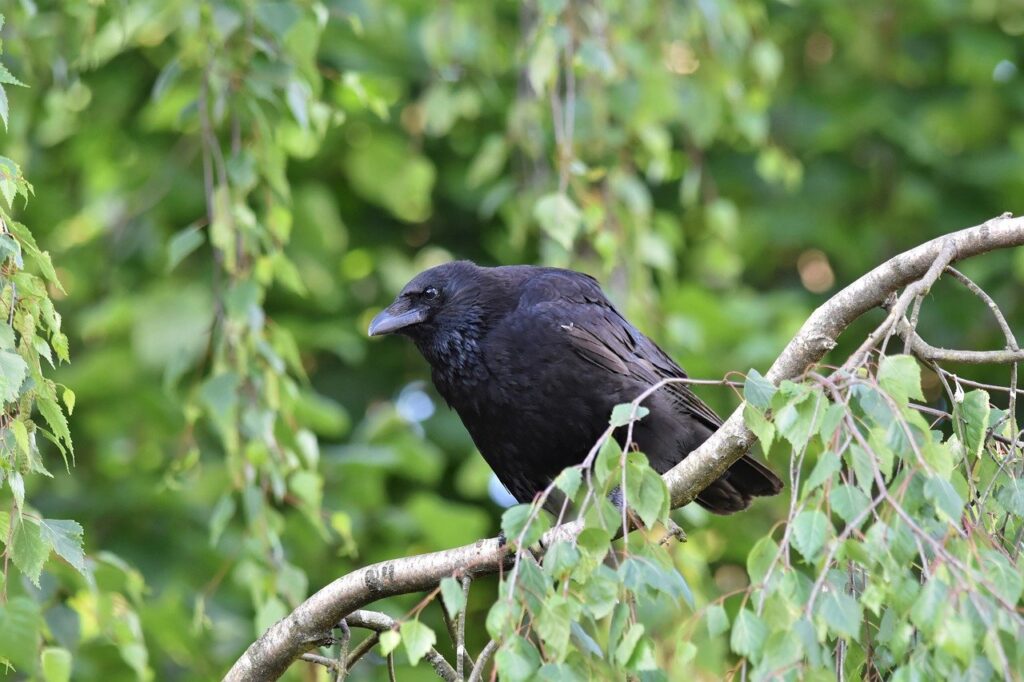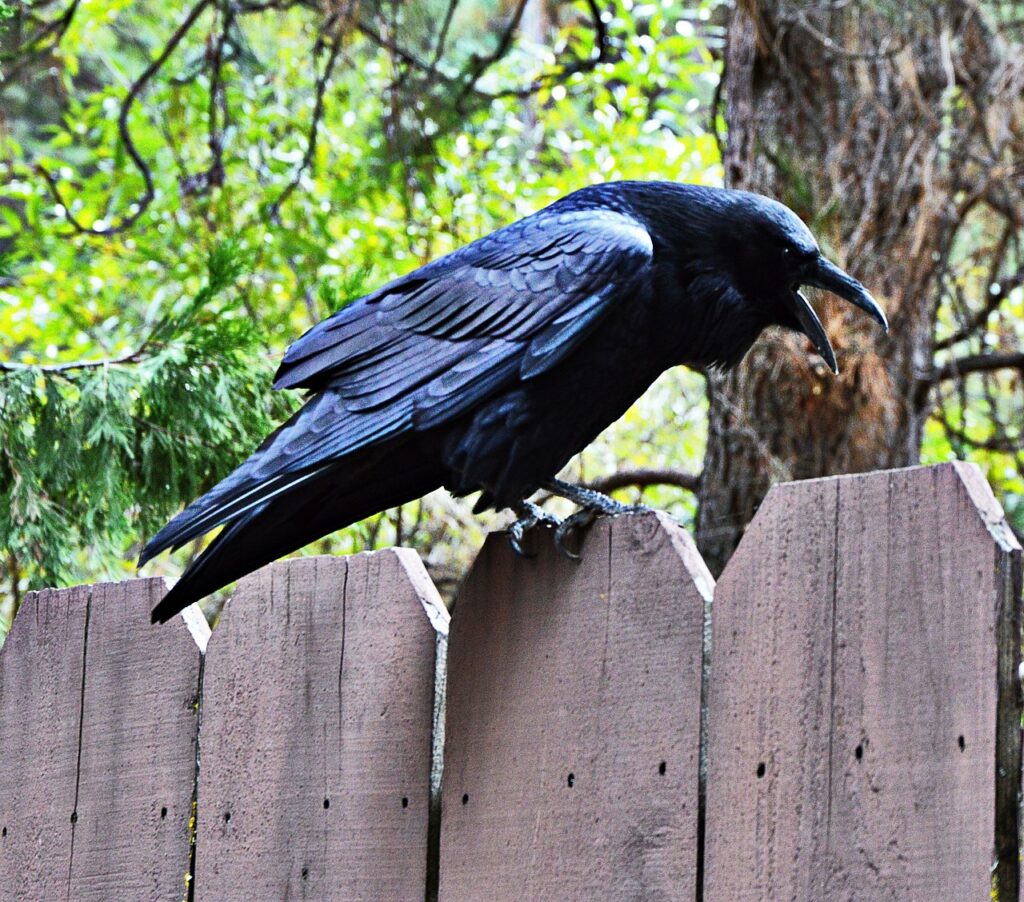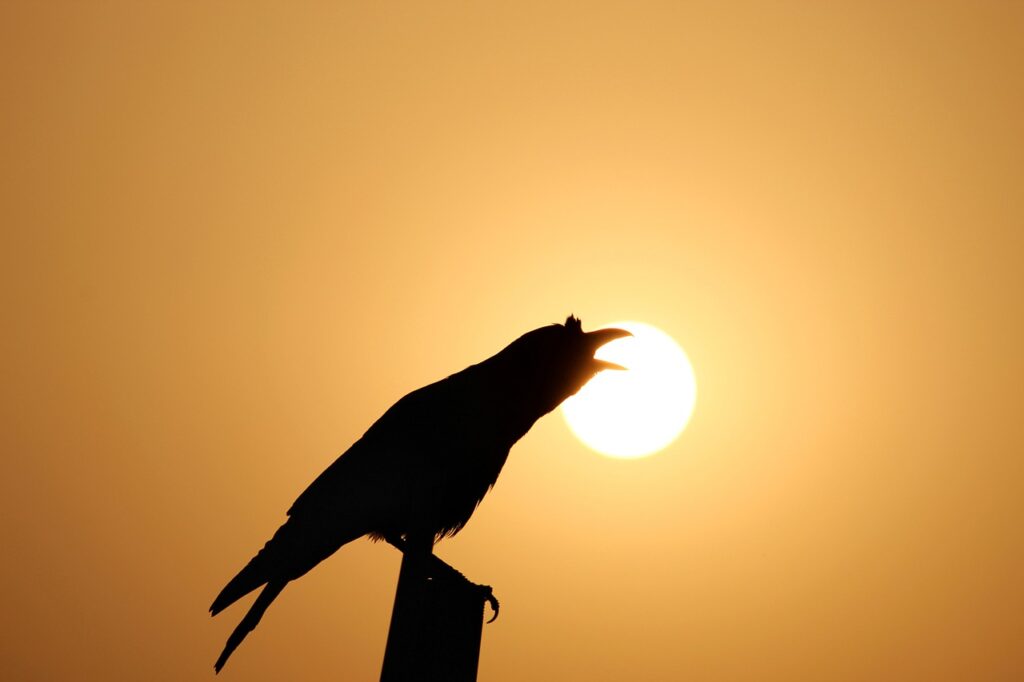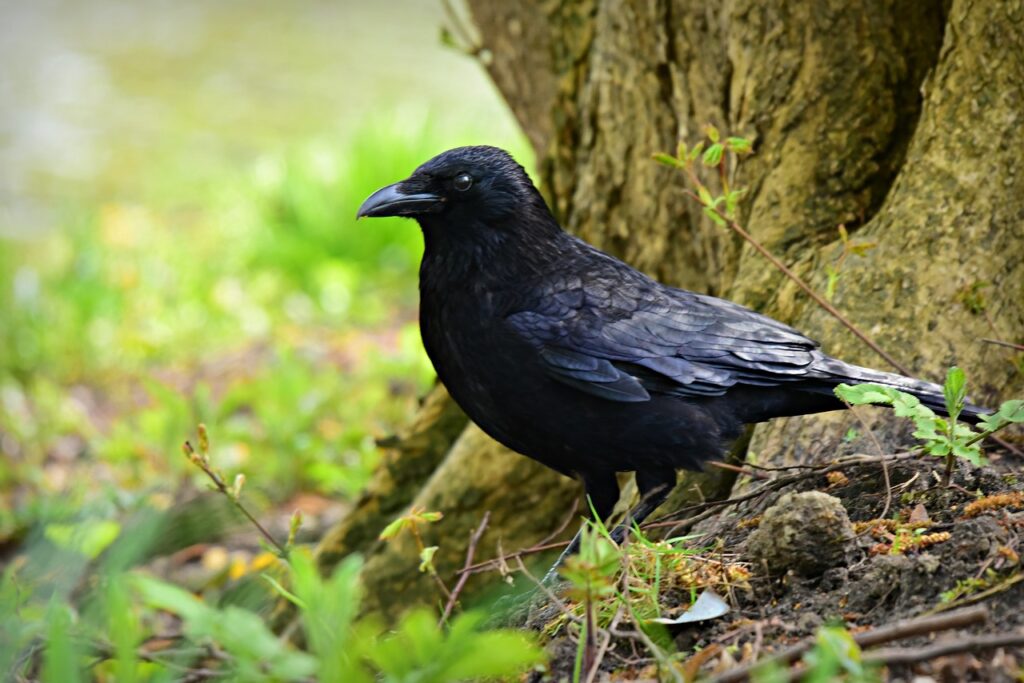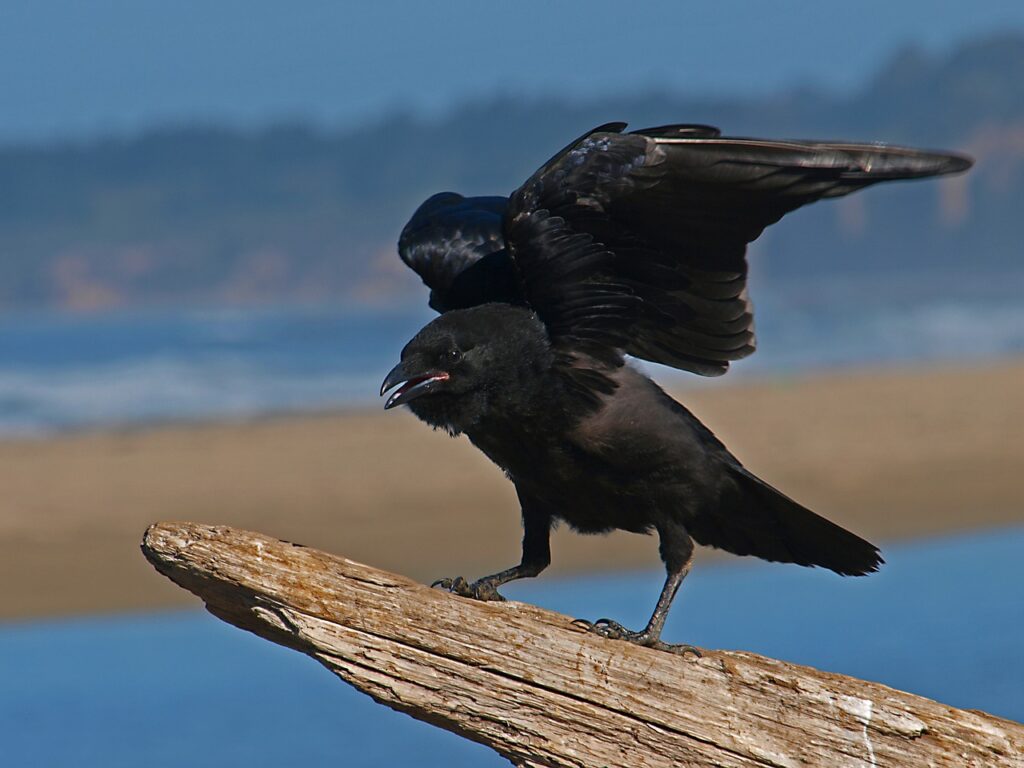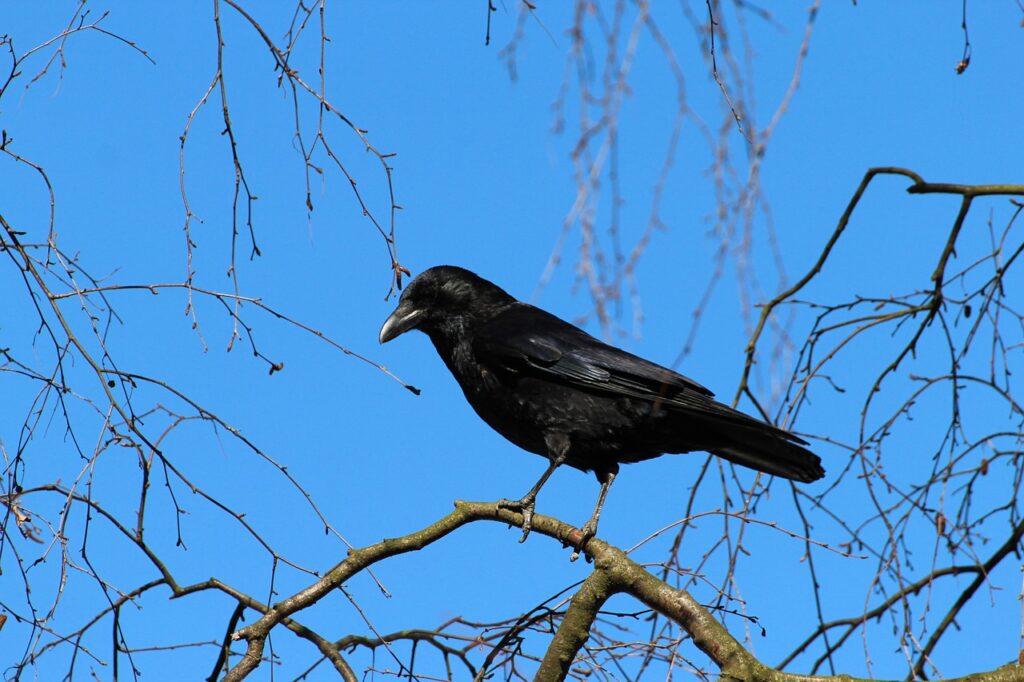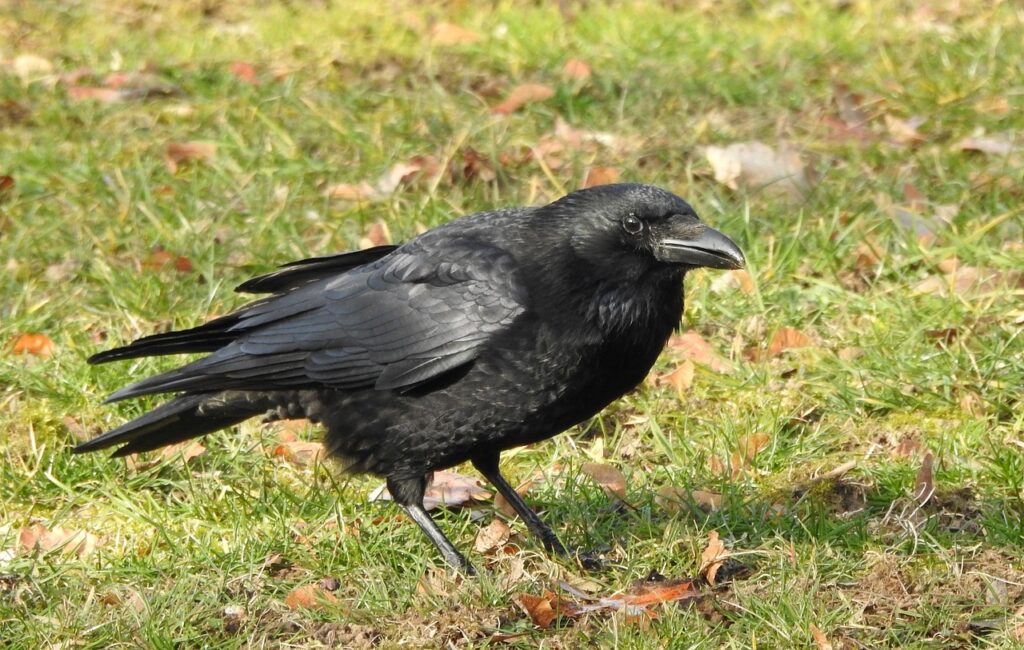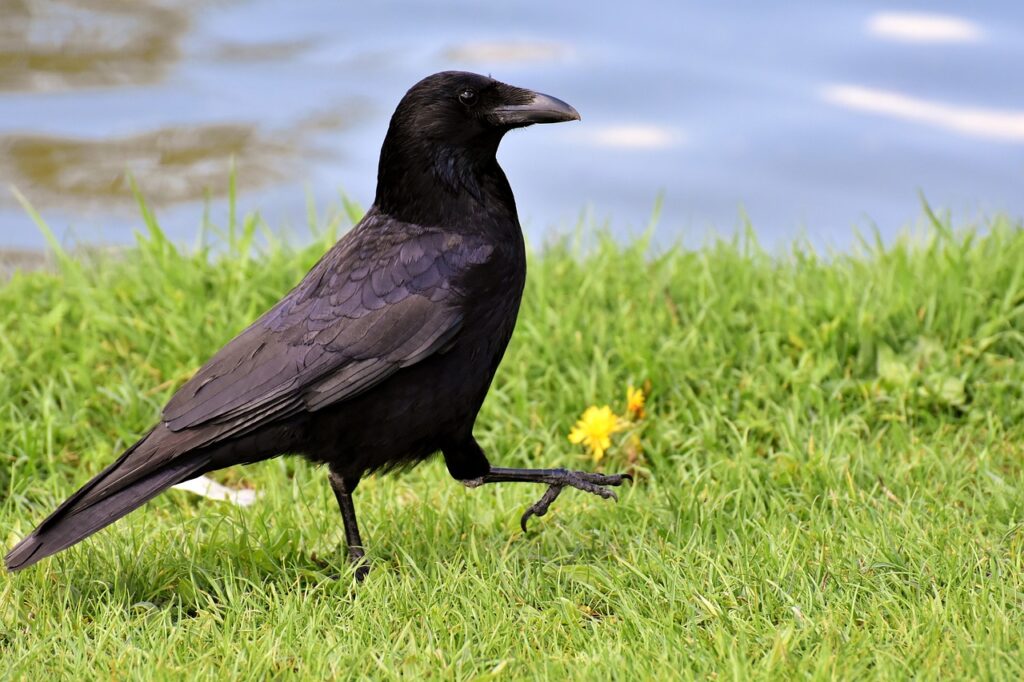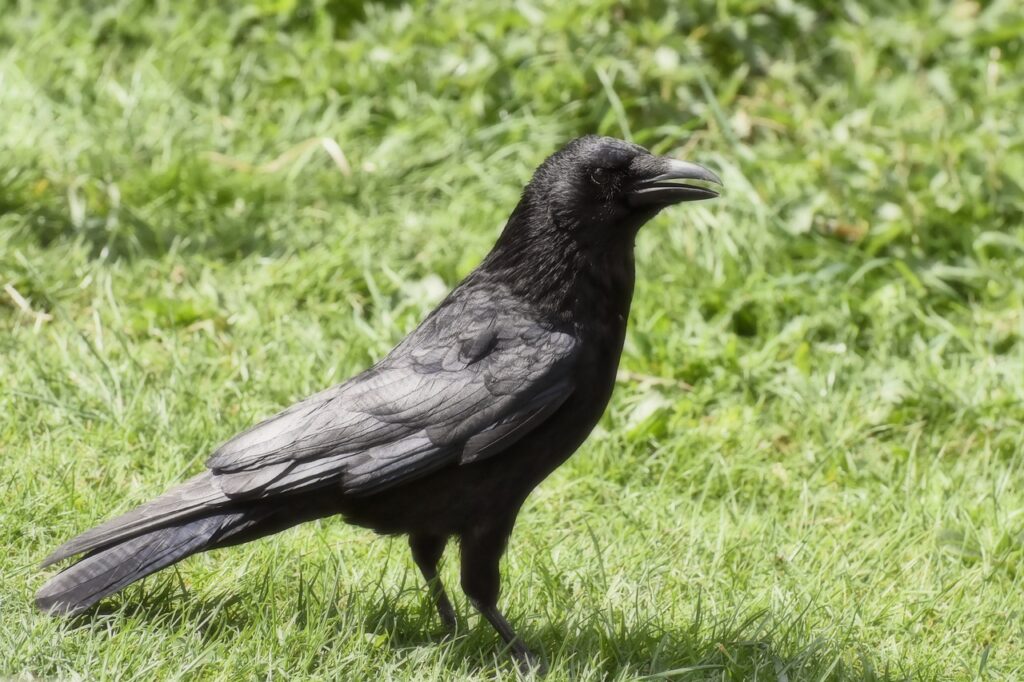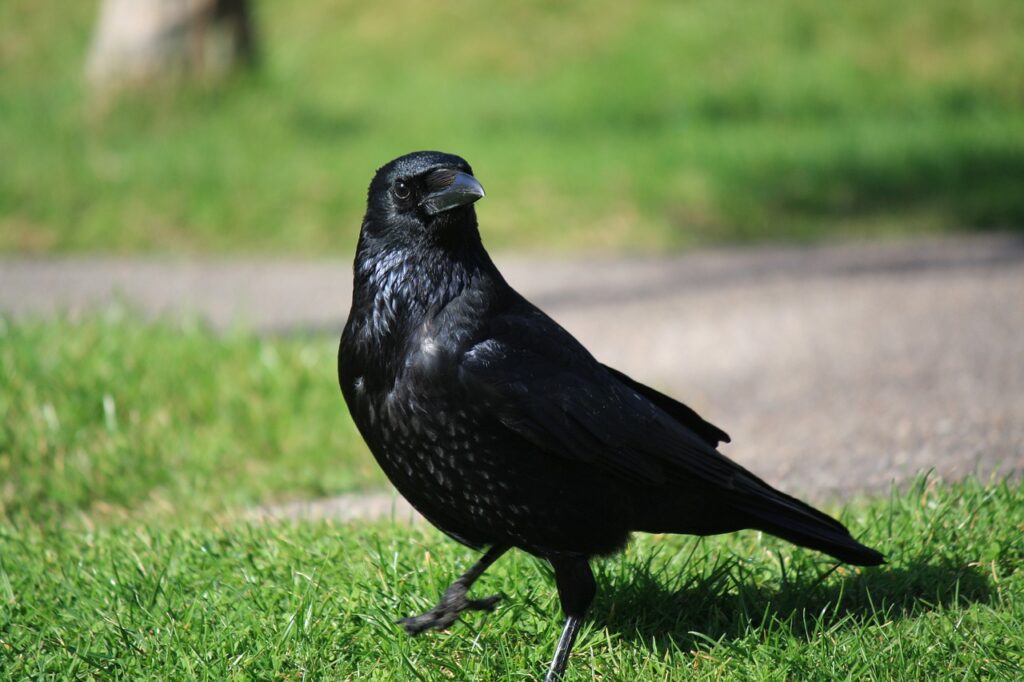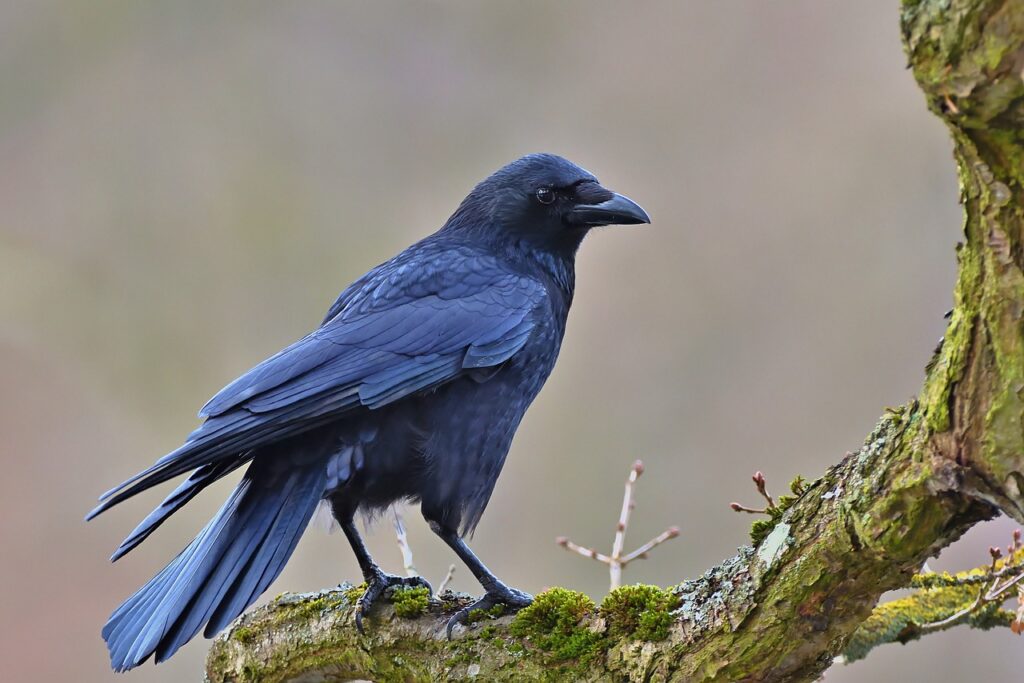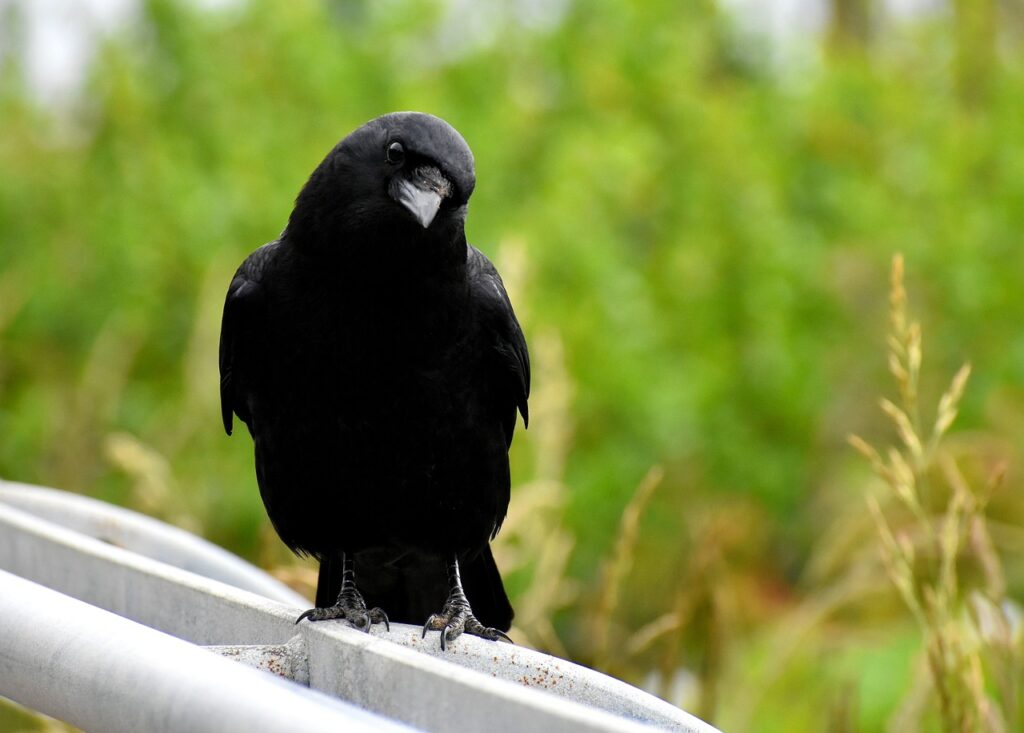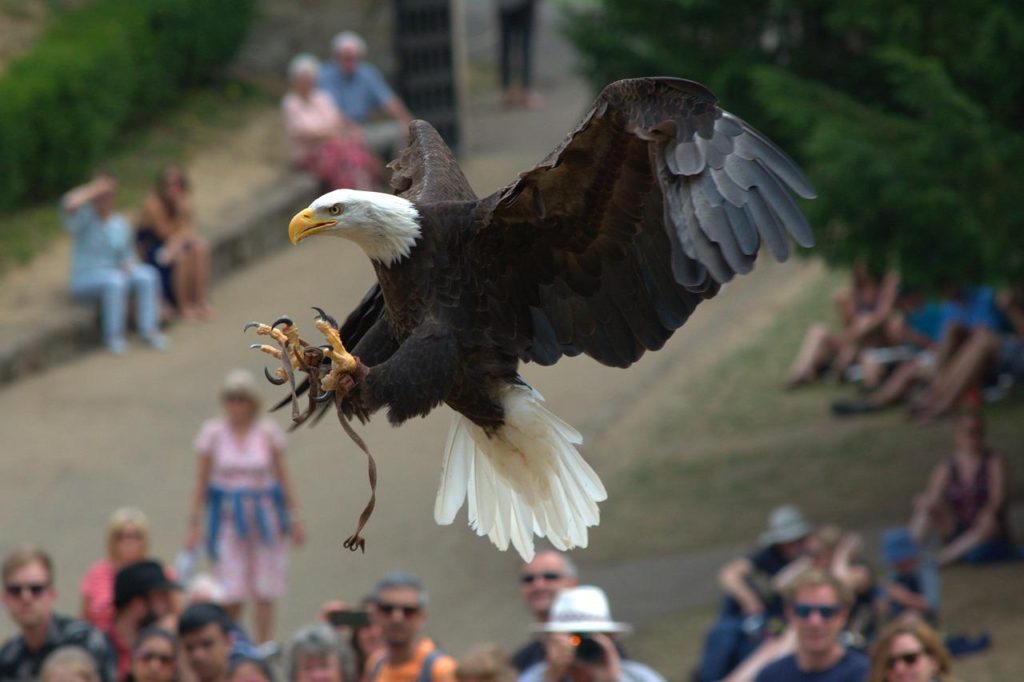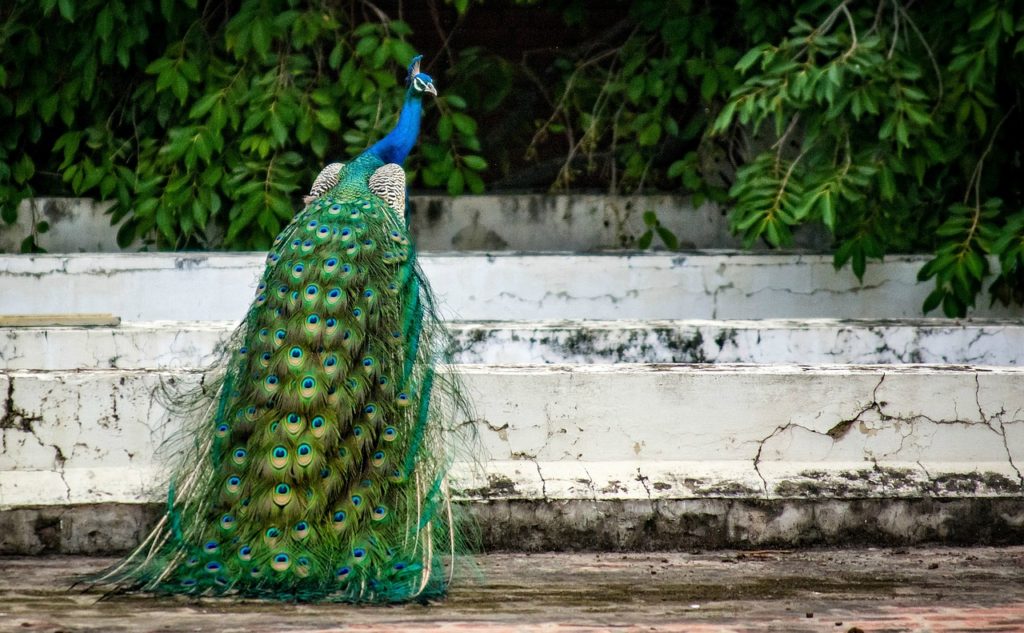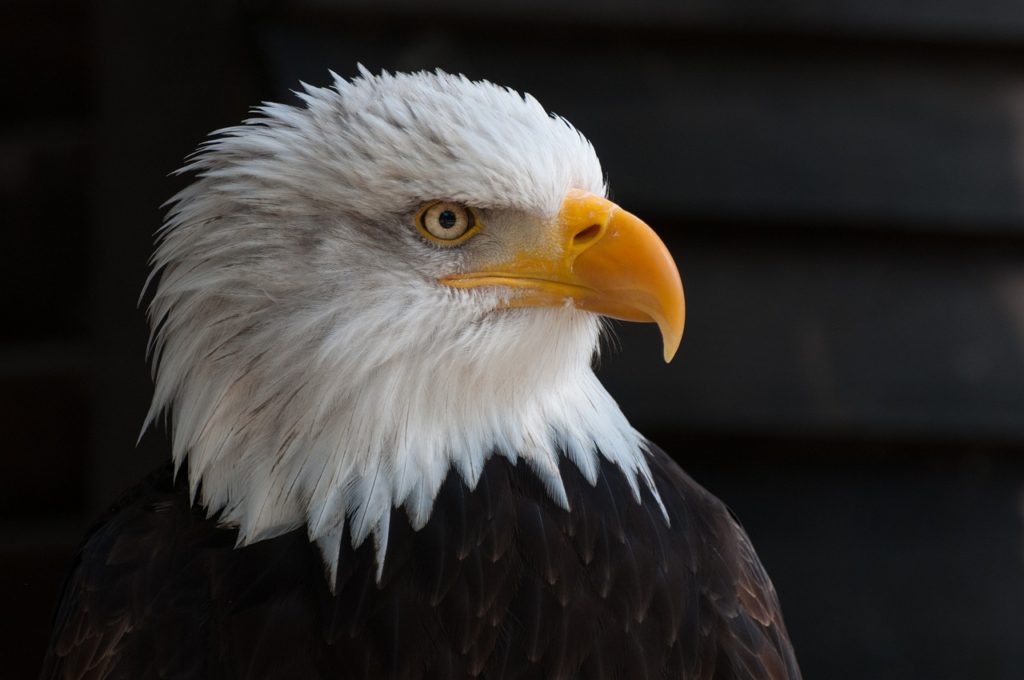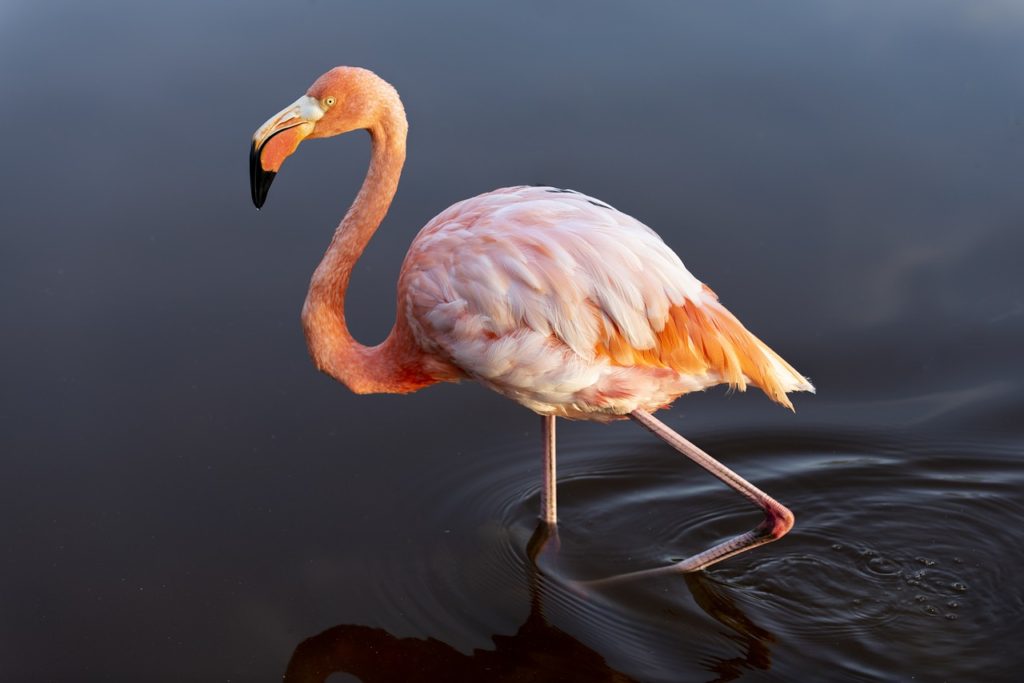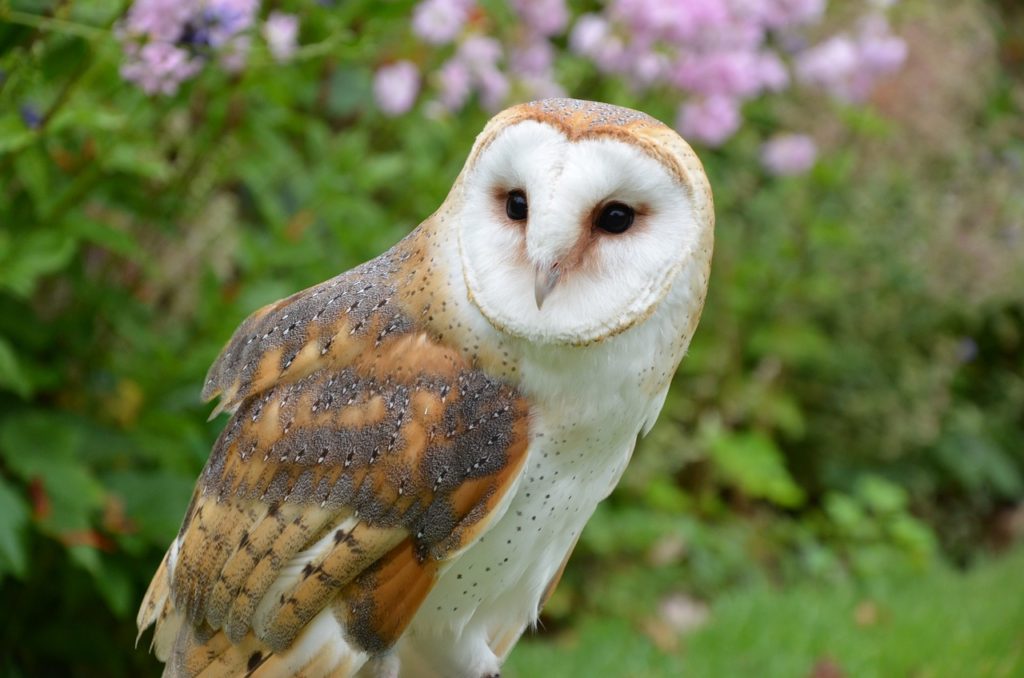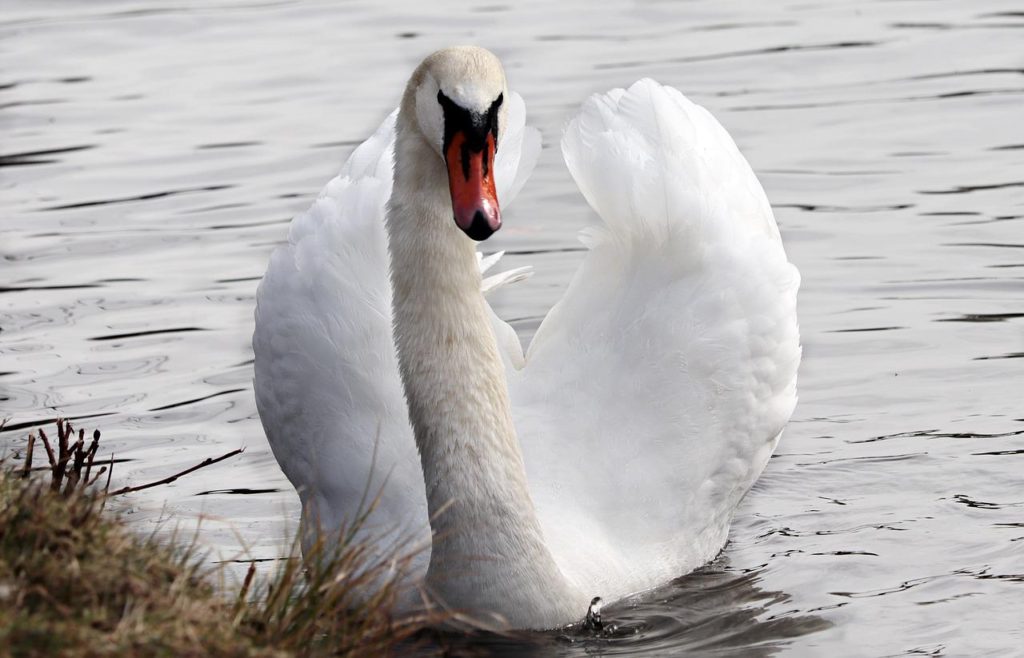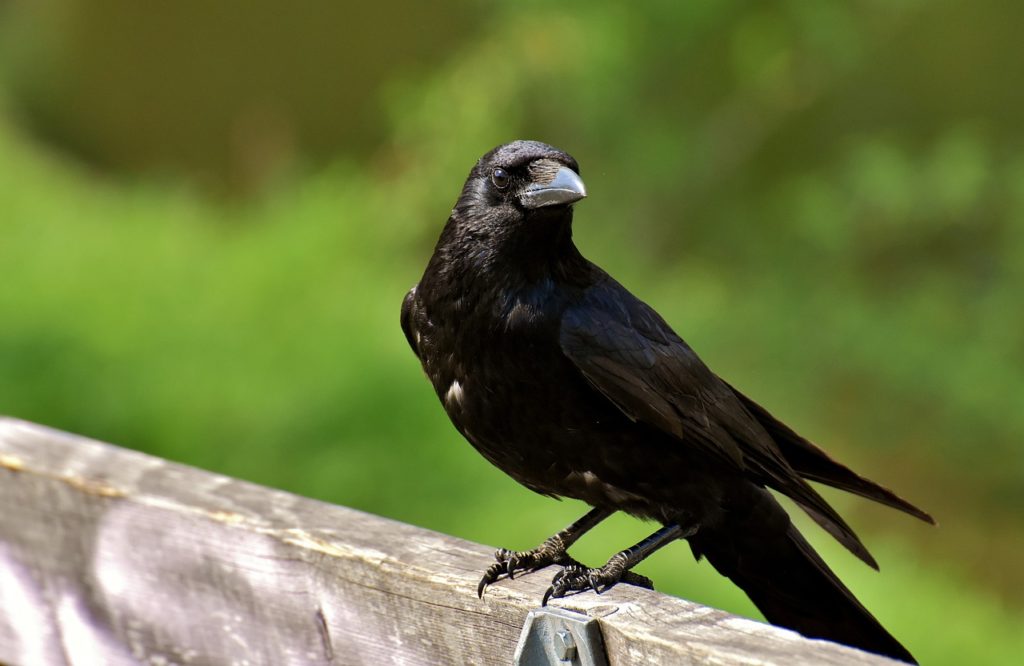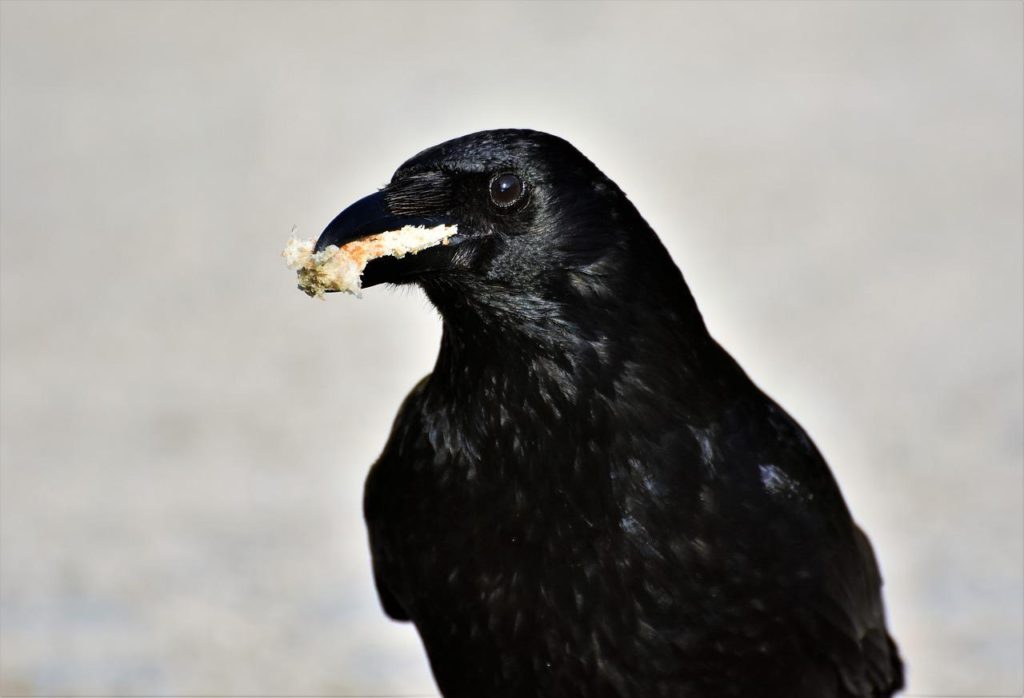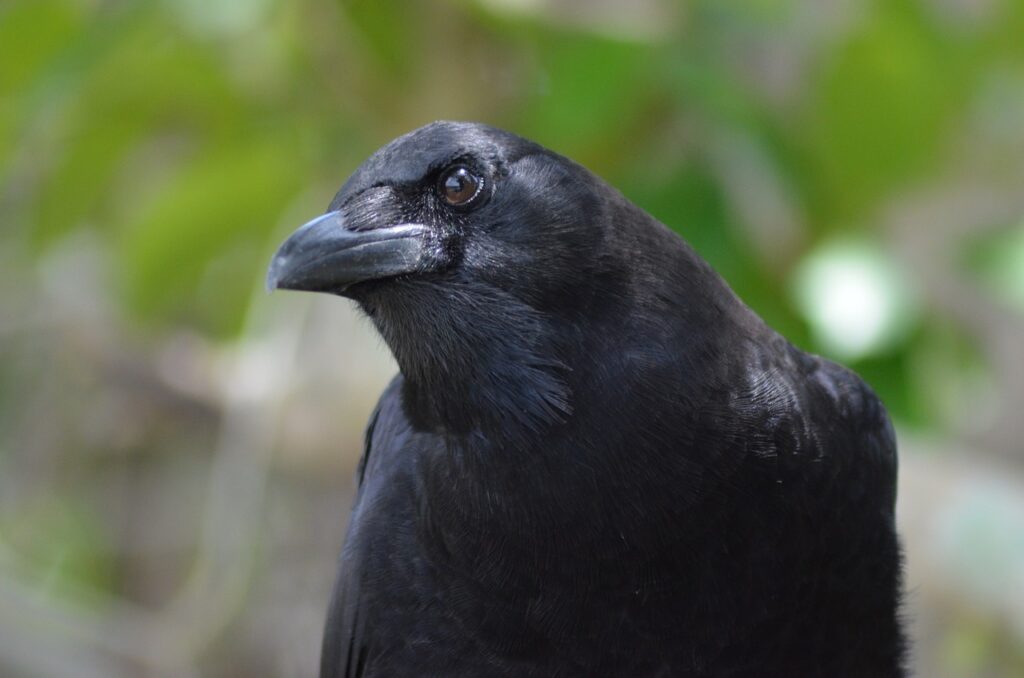
Do crows mate for life? Yes, they do. And this behavior is highly advantageous to them. Here’s what you’ll want to know.
How Do Crows Attract A Mate?
Crows are social birds; most of the year, they live in small family groups. During the breeding season, however, single male crows that have reached sexual maturity will leave the group and attempt to find a mate and establish their territories.
In addition to securing a territory, male crows will also vocalize using a range of calls and songs to impress females. Physical displays such as puffing up their feathers, bobbing their heads, and spreading their tales, along with flapping and spreading their wings, are also used to signal females.
Sometimes, males will bring food and nesting materials to an individual female to try and impress her as well. Females will decide whether or not to pair with a male based on the quality of his displays and his perceived ability to provide for her and her future offspring.
If she approves of the male crow, they will move into his male’s territory and mate. Although female crows are quite selective. If they aren’t impressed with the available males they may simply choose to wait until the following year to find one.
When Do Crows Mate?
It typically takes crows anywhere from two to four years before they are sexually mature and ready to mate. This varies from crow to crow and can also be influenced by the availability of resources in their environment. Crows have a delayed sexual maturity when compared to other types of birds.
This is believed to be an advantage for survival as it gives them time to gain experience and learn important social behaviors before going off to reproduce. The time of year that crows mate depends on where they live.
In North America, for example, the crow mating season is typically from March to May. However, in Europe, it tends to be from April to June. And in Australia, it normally runs from September to January.
Do Crows Mate For Life?
Crows do mate for life. They stay with their partner year-round and together they will forage, build a nest, mate, raise their young, and defend their territory. They will do this year after year and as a result, they form very strong bonds. Crow pairs can often be seen grooming each other.
This behavior is believed to strengthen their bond (similar to when apes and monkeys groom members of their social group). Known as allopreening, crows use their beaks to comb, probe, and pick through their mate’s feathers and remove pests such as mites and flies, along with debris.
However, there are exceptions, and sometimes crows do split up. For instance, when one of the crows can’t successfully reproduce the pair may split and each will attempt to find a new partner.
Why Do Crows Mate For Life?
Mating for life has several advantages. One of the biggest is that both parents are there to help care for and protect the young instead of only the female. This helps to increase the odds of their young surviving.
It also allows them to use their resources, such as energy, more efficiently as they can share responsibilities so that while one parent is guarding the nest, the other can be foraging for food, for example. Mating for life makes for a more powerful pair bond as the bond between the two birds grows over time, providing them emotional support.
What Do Crows Do When Their Mate Dies?
Crows are known to engage in mourning behavior around the dead crow calling loudly. This may sometimes last for several days. Because the bond between mates is vital when one dies, the remaining crow may be impacted heavily.
As the remaining crows do not have their mate to protect them or their offspring, they may adjust their behavior and compensate by becoming more aggressive and territorial. Depending on the individual crow, they may spend more time with other crows in their family group than they did before or less.
When it comes to finding a new mate, that depends on the individual crow as well. Some birds may seek a new mate rather quickly, while others may wait longer.
And some birds, often older crows that had been pair bonded for a long time, may never look to find a new mate. So while crows mate for life, there are circumstances such as the death of their partner, which may cause them to find a new mate or even stay single for the rest of their days.
Start Shopping for Birding Supplies!
Crow Symbolism: Everything You Need To Know
Ever wondered why the crow has captured the imagination of so many cultures throughout history? Let's embark on a fascinating journey through the world of crow symbolism, unraveling its mysteries and discovering its significance across various cultures, religions, and...
Creepy Facts About Crows
Crows are highly intelligent birds that have thrived alongside us humans. However, while they are fascinating creatures, at the same time, there are many things about them that many people find quite unsettling. That being said here as some of the most creepy facts...
Why Are Crows So Loud?
As anyone who has heard their loud "caws," can tell you, crows are very noisy birds. In fact, they are considered one of the loudest of all bird species. But why are crows so loud? Read on to find out. The Importance Of Vocalizations Crows use vocalizations to pass on...
Do Crows Remember Faces?
Crows are known for their intelligence. But do crows remember faces? You bet they do! Here's what you'll want to know. Crow Intelligence Crows are brilliant birds. In fact, their level of intelligence is often compared to that of primates. They are so smart that they...
Why Are Crows Black?
American crows are birds with all-black plumage. But why are crows black? Well, there are several reasons. Read on to find out. Bird Color Basics Birds are some of the most colorful creatures on the planet. And they come in an amazing range of colors from white to...
Are All Crows Black?
When it comes to crows, most people are familiar with the image of a sleek-looking solid black bird. But are all crows black? No, they aren't. Here's what you'll want to know. The American Crow Is Not All Crows The American crow is found throughout most of North...
How Long Do Crows Live?
How long do crows live? That's one of the many questions people ask about these familiar all-black birds. Here's what you'll want to know about the lifespan of crows and what affects it. How Long Do Crows Live In The Wild? In the wild American crows have a lifespan of...
Enemies Of Crows
Crows are a common sight in many parts of the world. However, most of us don't realize that these distinctive jet-black birds face a range of threats even when they are in our own backyards. The following are the main enemies of crows. Natural Predators of Crows One...
Predators of Crows
In many places, crows are such a common sight that it can be easy to forget that they actually have many predators. And being "on the menu," for a range of other animals is actually why these birds are so wary. That being said, here is everything you'll want to know...
Are Crows Territorial?
Are crows territorial? The answer is yes. However, just how territorial they are can depend on several factors. Here’s what you’ll need to know. Territoriality In Birds Territoriality is the behavioral trait of defending and maintaining a specific area territory...
What Eats Crows?
Crows are large and highly intelligent birds that eat a wide variety of foods including many other animals. So, what eats crows? Here are the most common crow predators and what you’ll want to know about them. Birds Of Prey The birds of prey are a group of predatory...
Are Crows Friendly?
Crows are commonly seen, and heard, in close proximity to us in our towns and cities. But are crows friendly? The answer may surprise you. Crows Are Highly Social Birds Crows are social birds that live in family groups. And they are well known for forming close bonds...
Birds With Talons
All birds have claws. However, only a few types have the scary-looking and dagger-sharp claws called, “talons”. So here are the birds with talons and what you’ll want to know about each of them. What Are Talons? Talons are the claws of a group of predatory birds known...
Birds With Tails
Just like birds themselves, birds’ tails come in a wide range of shapes and sizes. And some tails of course are more interesting and remarkable than others. The following are birds with tails that never fail to impress! Long-Tailed Tit The long-tailed tit, also known...
Birds With White Heads
There's no doubt about it, birds with white heads really stand out. From small to large they are quite a unique bunch. So here are some of the most fascinating white-headed birds and what you'll want to know about them White-Headed Vulture The white-headed vulture is...
Birds That Look Like Flamingos
Flamingos are wading birds with long necks and legs. These social birds live in groups and have strongly hooked downward-facing beaks which they use to feed on shrimp and other small water creatures. And they are famous for their stunning pink color. With such a...
How To Attract Owls To Your Yard
Owls are nocturnal birds of prey that can be extremely helpful when it comes to controlling rodent populations in a natural way. That is of course if you can attract them to your property by creating an owl-friendly habitat. So keep reading to find out how to attract...
Why Would A Swan Be Alone?
It's widely known that swans are incredibly social and romantic creatures, so it can be disconcerting when you encounter a solitary swan. However, there are several reasons why this might be. So why would a swan be alone? Here's what you'll want to know. But first,...
How To Attract Crows To Your Yard
Crows aren’t always pests as many people believe. In fact, these super smart birds can actually help to rid your property of many common backyard and garden pests themselves. So here’s your step-by-step guide on how to attract crows to your yard! Step 1. Create A...
What Do Crows Eat?
With roughly 40 different species, crows are a common sight in most places around the world. And while most of us are familiar with their appearance and harsh vocalizations, their diet is not as obvious. So what do crows eat? Here's what you'll want to know. What Do...
